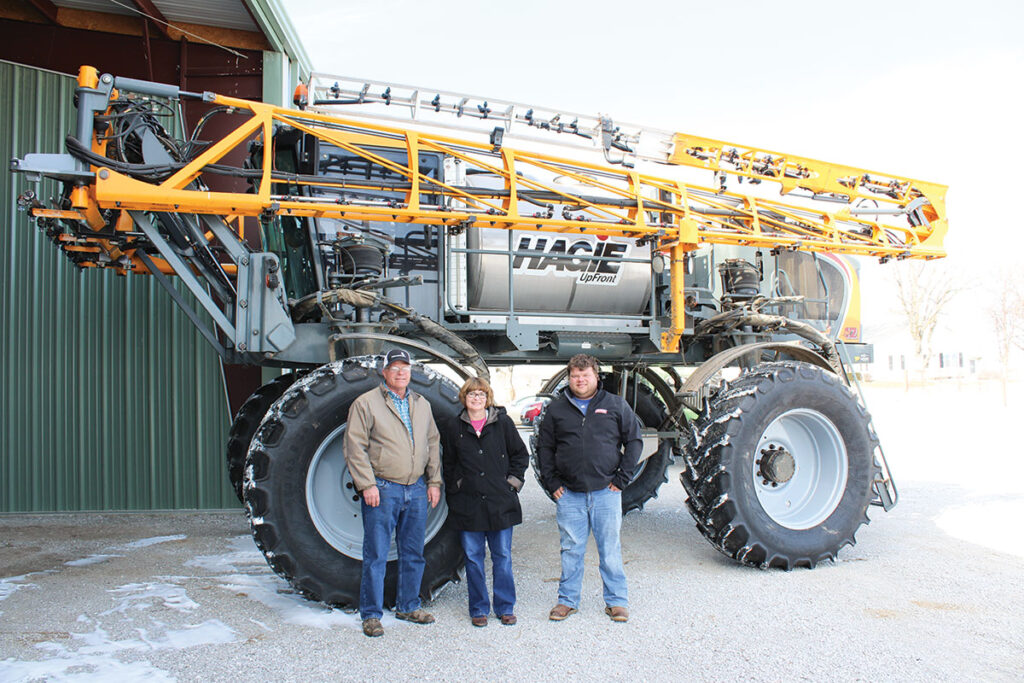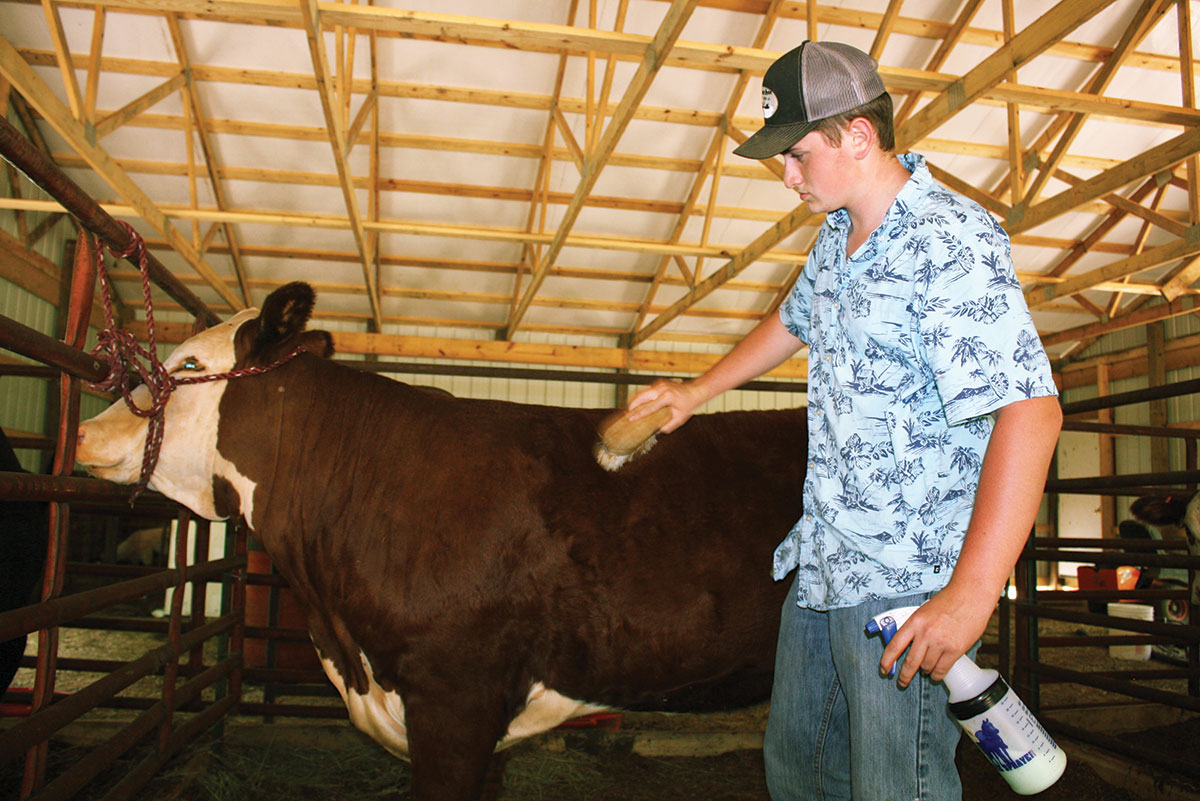
Bates County, Mo., farmer Brice Fischer takes on leadership role
RICH HILL, MO. – As a youngster in Bates County, Mo., Brice Fischer loved to be on the farm with his dad Kevin.
“I was in kindergarten and would come home off the bus and go to the farm with my dad,” Brice said. “I taught ag education for four years when we didn’t have enough ground to farm and decided to partner in 2012 when my dad and his brother amicably split their farming operation after 40 years together. We took more of the row crop operation, and we picked up several hundred more acres to farm.”
Brice also became a Pioneer and Corteva dealer to supplement his side of the operation,
Today, Brice his parents, Kevin and Mary Fischer, and his wife Ashleigh own and operate Fischer Farms near Rockhill, Mo., a 1,400-acre corn, soybean and cattle operation.
“We try to split our land 50-50 with the corn and the soybeans,” Brice said, adding they stopped producing wheat about four years ago.
The family also runs a 150-head fall-calving herd of Angus-cross cattle.
In October, the fifth-generation row crop and cattle producer assumed an industry leadership role with his election to the Missouri Corn Growers Merchandising Council and Missouri Corn Growers Association board of directors, representing District 4.
“Six or seven years ago, I went through the CornRoots Leadership Academy (a program geared toward young corn producers in Missouri who are interested in developing their leadership skills and influencing the policy process) and that kind of got it going,” Brice said. “My parents have also been very influential in Farm Bureau and have served on boards for many years. When I was asked, I decided it was time to fulfill my role. In five or seven years, I might not be able to serve on a board as easily as I can now, so I did it.”
The 14-member board was formed in 1984 with the passage of a corn checkoff paid by Missouri producers, which is 1 cent per bushel sold and is dedicated to market development, research and education, according to the Missouri Corn website. Established in 1978, MCGA is a grassroots organization of farmer-members dedicated to increasing the profitability of corn production by developing and expanding corn markets, building coalitions, and participating in the governmental process. Brice said the board also advises Missouri Corn employees and CEO Bradly Schad on operations and works closely with policymakers in Jefferson City, and on the national level in Washington, D.C.
While he serves on the board, Brice said he hopes to keep abreast of policies and changes at the state and national levels that can impact producers and advocate for the Missouri corn industry.
“I also feel like farming gets a pretty negative outlook in the media,” he said. “We can’t just flip a switch and grow a crop like other industries. It’s not like we can open the factory door and produce a product like other industries can.”
“Things have changed so much in the last 40 years, and I’m nervous about where it will go in the next 40 years. I want to try and help find new ways and new ideas to use corn. We can produce as much corn as the world needs, and sometimes more, but we have to find new ways to use it and be sustainable. Just like in soybeans and wheat, we have to find new ways to get our foot in the door and use Missouri corn.”

His involvement with the board, Brice said, is essential to give other producers a voice.
“There are other farmers out there who go about their day and get a little tunnel vision,” Brice said. “They think nothing is going to change or happen, and unless people step up and fill these roles, that’s what’s going to happen. I know everyone isn’t able to serve on a statewide level, but even on a local level, it’s important for farmers to still have a voice and voice their opinion. It takes work to get these jobs done, just like farming, but nothing will happen by just complaining about it. I hope to serve nine to 12 years if I can and do a good job when I do it. Hopefully, the next guy who comes on will be young can have their eye on policy and issues in agriculture and keep moving forward.”
Being a younger producer himself, Brice said keeping younger people involved is key to the industry’s evolution.
“We have a good mix on the board right now,” he said. “I think it’s good to have a younger perspective and that older and wiser perspective. But, we don’t farm the way my grandpa did or even the way my dad did 20 years ago. The industry is evolving very quickly, and if we don’t stay ahead of it, we will be pushed out the back door.”
Brice said commodity inputs are among the more significant issues facing Missouri crop farmers.
“Everything is so high right now, and fertilizer prices have crept up more than 120 percent in the last six months, then there is the availability,” he said. “Everyone tried really hard to put on fertilizer this fall for the upcoming crop, but then some didn’t get that achieved, and they will struggle with that this spring. I just hope there’s enough product available for the U.S. to grow a great crop if Mother Nature gives us the ability to.”
Brice said his main goal for Fischer Farms is to prepare for the future.
“I want to be able to have all the product I need on my farm and be able to store it all,” he said. “We just put in an anhydrous storage facility, and we store a lot of our fertilizer. I would also like to put in dry storage so I can hold all of my dry fertilizer for years like this. I would also like to purchase more ground in the future and get to 1,500 solely-owned acres before I retire. That would be a decent start for someone else.”







